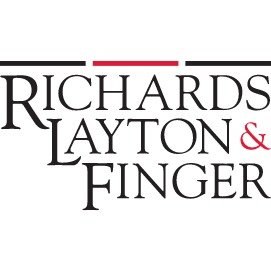Best Financial Services Regulation Lawyers in Delaware
Share your needs with us, get contacted by law firms.
Free. Takes 2 min.
Or refine your search by selecting a city:
List of the best lawyers in Delaware, United States
About Financial Services Regulation Law in Delaware, United States
Financial Services Regulation in Delaware refers to a broad set of rules and regulations that govern companies providing financial services, such as banks, credit unions, mortgage lenders, insurance companies, investment firms, and fintech companies. Delaware, known for its business-friendly climate, is home to many financial entities that are subject to both state and federal regulations. These laws are designed to ensure consumer protection, promote fairness in financial transactions, guard against fraudulent activity, and maintain the overall integrity of the financial marketplace.
Why You May Need a Lawyer
You may need a lawyer experienced in Financial Services Regulation in Delaware for several reasons, including:
- Launching a new financial services business or product in Delaware and navigating complex licensing requirements.
- Complying with changing state or federal financial regulations, such as anti-money laundering or data security laws.
- Responding to regulatory investigations or enforcement actions by state regulators like the Office of the State Bank Commissioner.
- Handling disputes with consumers, such as claims of unfair lending practices or privacy concerns.
- Conducting regulatory due diligence for mergers, acquisitions, or investments involving financial service businesses.
- Interpreting rate and fee limitations, advertising regulations, or state usury laws.
An attorney in this field can help you understand your obligations, minimize legal risk, and effectively manage regulatory challenges.
Local Laws Overview
Delaware financial services companies are regulated under state laws administered through agencies such as the Delaware Office of the State Bank Commissioner and the Delaware Department of Insurance. Some key aspects of local financial services regulation include:
- Banking and Lending: Delaware law governs activities including formation, licensing, operating requirements, permissible fees, and restrictions on interest rates for state-chartered banks and non-bank lenders. Delaware has adopted relatively flexible rules regarding interstate banking, making it an attractive hub for national banks.
- Consumer Protection: Delaware has specific laws regarding fair debt collection, disclosures, non-discrimination, and privacy for financial consumers. Many businesses must follow both state and federal rules, such as those under the Truth in Lending Act and the Gramm-Leach-Bliley Act.
- Insurance Regulation: The Delaware Department of Insurance oversees licensing, solvency, and market conduct regulation for insurance companies and agents.
- Investment and Securities: The Delaware Investor Protection Unit enforces state laws related to securities fraud, licensing of securities professionals, and registration of securities offerings.
- Fintech and Emerging Services: Delaware continues to update its regulatory approach regarding virtual currencies, digital banking, and financial technology services to encourage innovation, while maintaining consumer safeguards.
Non-compliance with these laws can result in substantial fines, business restrictions, or loss of licensure.
Frequently Asked Questions
What types of financial businesses need a license to operate in Delaware?
Most banks, credit unions, mortgage lenders, check cashers, money transmitters, insurance companies, and investment advisors must be licensed through relevant Delaware regulatory agencies.
How does Delaware law handle interest rates and usury?
Delaware is known for having relatively permissive usury laws, allowing many banks and lenders to charge higher interest rates compared to other states, provided they comply with notice, disclosure, and federal law.
What consumer protection laws apply to financial services in Delaware?
Delaware has its own consumer protection statutes relating to fair lending practices, debt collection, data privacy, and unfair or deceptive practices, in addition to federal requirements.
Are there specific regulations for fintech or digital currency companies in Delaware?
Yes, Delaware requires certain fintech businesses, especially those involved in money transmission or digital assets, to obtain special licenses and comply with both state and federal regulations.
What penalties can a business face for violating financial regulations in Delaware?
Penalties can include fines, orders for restitution to consumers, suspension or revocation of licenses, and possible criminal charges depending on the offense.
How does Delaware regulate insurance companies?
The Delaware Department of Insurance licenses and supervises insurance carriers, agents, and adjusters, ensuring compliance with insurance laws, solvency standards, and consumer protection requirements.
What should I do if my financial services business is being investigated by Delaware regulators?
Seek legal counsel immediately. Responding promptly and appropriately can help you protect your rights and possibly resolve issues before they escalate.
Can Delaware residents file complaints about financial services businesses?
Yes, consumers can file complaints with the Delaware Office of the State Bank Commissioner, the Department of Insurance, or the federal Consumer Financial Protection Bureau.
What is the process for getting a financial services license in Delaware?
The process typically involves an application, background check, submission of business and financial information, and payment of fees. The requirements vary by business type and are detailed by each regulatory agency.
How can my business stay updated on financial regulatory changes in Delaware?
Regularly review updates from state regulatory agencies, consult legal professionals, and participate in industry organizations to stay informed of new laws and compliance requirements.
Additional Resources
For additional guidance or official information regarding Financial Services Regulation in Delaware, consider the following resources:
- Delaware Office of the State Bank Commissioner
- Delaware Department of Insurance
- Delaware Department of Justice - Investor Protection Unit
- Consumer Financial Protection Bureau (CFPB)
- Federal Deposit Insurance Corporation (FDIC)
- Delaware State Bar Association
These entities can provide regulatory information, licensing details, consumer complaint processes, and educational materials.
Next Steps
If you believe you need legal assistance regarding Financial Services Regulation in Delaware:
- Assess your situation carefully and gather relevant documents and information related to your financial services activity or issue.
- Consult with an attorney licensed in Delaware who specializes in financial regulation. They can help you understand your rights and obligations, identify potential regulatory risks, and develop a compliance strategy.
- Contact relevant Delaware regulatory agencies for precise information about your licensing or compliance requirements.
- Monitor your business operations regularly to ensure ongoing compliance with both state and federal financial services laws.
Legal issues in financial services can be complex. Seeking timely and knowledgeable advice is the best way to protect yourself or your business and achieve a favorable outcome.
Lawzana helps you find the best lawyers and law firms in Delaware through a curated and pre-screened list of qualified legal professionals. Our platform offers rankings and detailed profiles of attorneys and law firms, allowing you to compare based on practice areas, including Financial Services Regulation, experience, and client feedback.
Each profile includes a description of the firm's areas of practice, client reviews, team members and partners, year of establishment, spoken languages, office locations, contact information, social media presence, and any published articles or resources. Most firms on our platform speak English and are experienced in both local and international legal matters.
Get a quote from top-rated law firms in Delaware, United States — quickly, securely, and without unnecessary hassle.
Disclaimer:
The information provided on this page is for general informational purposes only and does not constitute legal advice. While we strive to ensure the accuracy and relevance of the content, legal information may change over time, and interpretations of the law can vary. You should always consult with a qualified legal professional for advice specific to your situation.
We disclaim all liability for actions taken or not taken based on the content of this page. If you believe any information is incorrect or outdated, please contact us, and we will review and update it where appropriate.
Browse financial services regulation law firms by city in Delaware
Refine your search by selecting a city.












